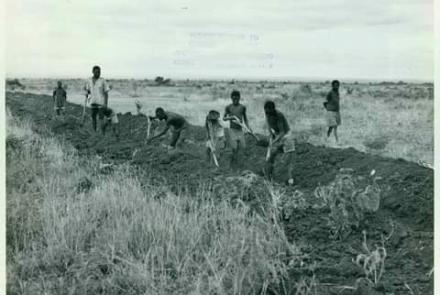Mzee Kenyatta’s Legacy
Mzee, as he was popularly known, was an important and influential statesman not just in Kenya, but throughout Africa. With his brilliance and uncanny leadership, his sense of direction and readiness to sacrifice gave strength and inspiration to people He is credited with leading Kenya to independence and setting up the country as a relatively prosperous capitalist state. He was considered as a beacon, a rallying point for suffering Kenyans to fight for their rights, justice and freedom.
Jomo Kenyatta as the President has been acknowledged as one of the greatest men of the 20th century. His rule will go down in history as a golden era in Kenya’s positive development. His positive approach to leadership took the lines of a moderate pro- western, anti-communist economic philosophy. During his tenure, unlike what most expected, he welcomed all races to remain in the country after Kenya attained independence. In this he was looking to bring about reconciliation between tribes, and between native tribes and the white settlers who remained to live in the country.
As Kenya’s first Prime Minister, he oversaw the setting up of the institutions of independent Kenya and the admission of the country to the United Nations. Throughout the period of his authority, the country was well governed, peaceful and stable, the economy grew rapidly and attracted high levels of foreign investment and an indigenous Kenyan professional and business middle class was established. He established a legacy of a Civil Service governed by a strong belief in the ethos of hard work and self-sacrifice. He also gave public institutions a considerable level of freedom to pursue what they deemed right and this is still seen in post independent Kenya. In general, he set out the kind of leadership a budding nation required.
Kenyatta was also a strong proponent of unity and cooperation among people and tribes for the benefit of the whole country. He popularised the new rallying call, ‘Harambee’ which was an old chant normally used at the Coast, meaning to pull together.
Apart from being involved in politics, Kenyatta was also a scholar and author. He contributed to Kikuyu literature through his writings and authored books including, ‘Facing Mount Kenya,’ ‘Suffering Without Bitterness, My People of Kikuyu and the Life of Chief Wang’ombe,’ ‘The Challenge of Uhuru’, ‘The Progress of Kenya and Kenya’ and ‘The Land of Conflict’.
At the international level, Mzee Kenyatta is renown as one of the pioneer leaders of the Pan Africanism together with African Americans WEB Dubois and George Padmore, Ghana’s first President Kwame Nkrumah and former Malawi President Hastings Banda.
Kenyatta also set the foundation for Kenya’s future path as a big player in international peace and stability. Immediately after becoming Kenya’s leader, he made it clear that no African should feel contented as long there was another African nation still under the yoke of colonialism. Kenyatta also was the first to organise mediation talks between warring groups from Angola who had turned the guns on each at a time their country was due to gain independence from Portugal.


